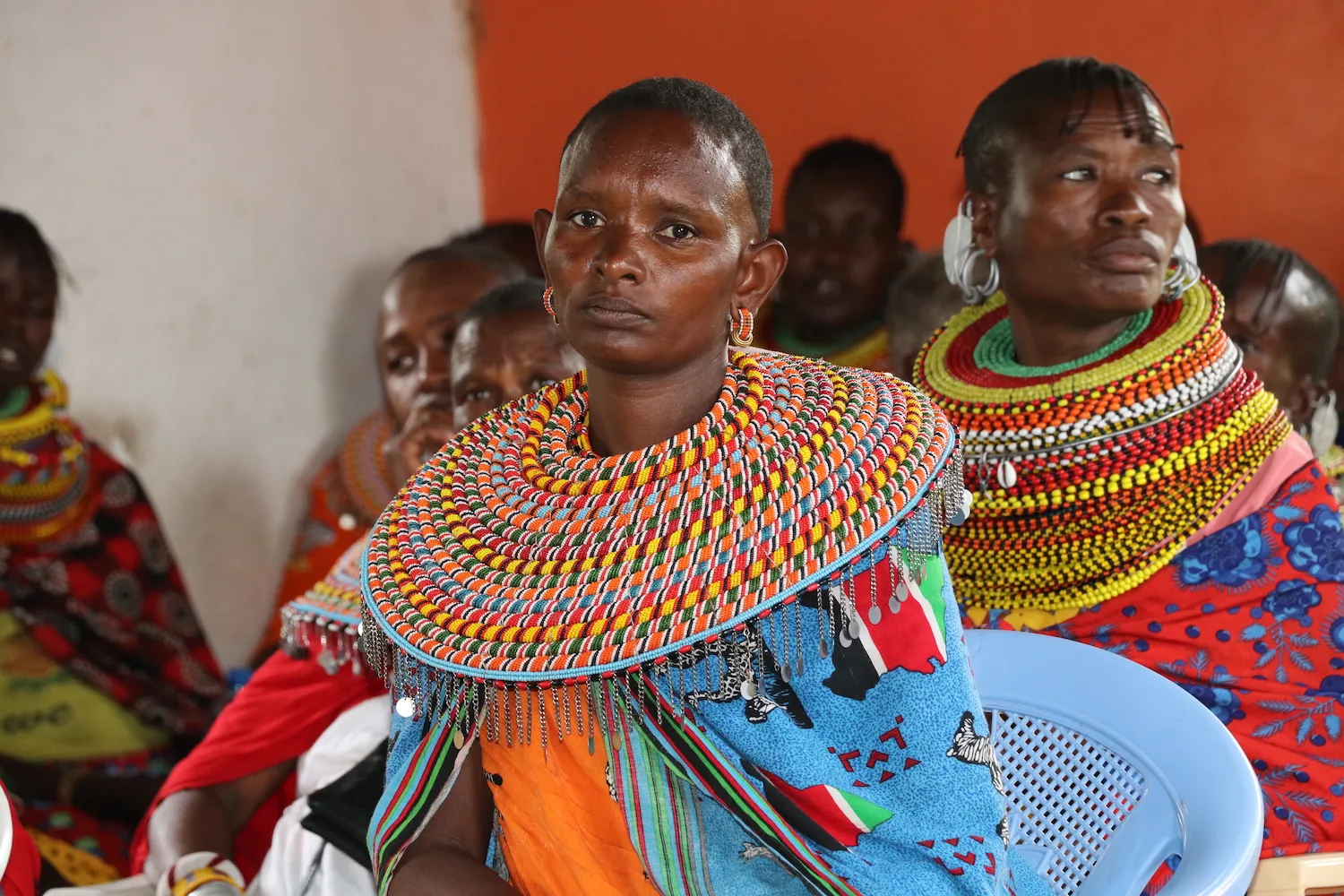Women, peace and security

Interpeace has established its commitment to integrating gender and contributing to United Nations Security Council Resolution 1325 on women, peace and security through its global guidelines: 10 Foundations of Gender-Inclusive Peacebuilding. Interpeace has since undertaken several projects dedicated to or integrating gender. In 2023, 75% of programmes had at least one project that was either dedicated to or integrating activities aimed at enhancing women’s meaningful participation to peace.
Several key products have been developed to integrate gender into Interpeace’s peacebuilding programmes around the world. The Burundi programme developed a gender strategy, while the Kenya programme undertook a gendered conflict analysis to inform programming. The Rwanda programme developed a positive-masculinity curriculum, promoting the transformation of men to create an enabling environment for more positive gender relations and more meaningful participation of women in all facets of life and community. At the global level, Interpeace published guidelines on Integrating Gender into Peace Responsiveness to inform Interpeace’s work with multilateral agencies and other international actors. Interpeace also finalised internal guidance on conducting national consultations in a way that is responsive to gender and to other inclusion factors.
The production of these tools and programmatic experience have confirmed several points from the 10 Foundations of Gender-Inclusive Peacebuilding, namely:- The importance of male champions and leveraging positive-masculinities training and support to create a supportive environment for women, both in their homes and in the larger community. This work is invaluable not only in providing women the confidence to meaningfully participate but also ensuring that the male figures around these women serve as a support network for the emergence of women leaders, particularly in the peace space.
- Safe spaces, both formalised groups and training or informal efforts to engage women on the margins of community dialogues dominated by men, allow for identifying less obvious factors contributing to conflict or peace, for transforming women’s perceptions of what they can accomplish and for enhancing women’s skills and strategies to influence their wider communities.
- Providing women with the opportunity to practice their leadership in community processes can further shape community perceptions and acceptance of their participation. However, attention needs to be given to ensure that these women are connected to and can make decisions in favour of other women in their communities.